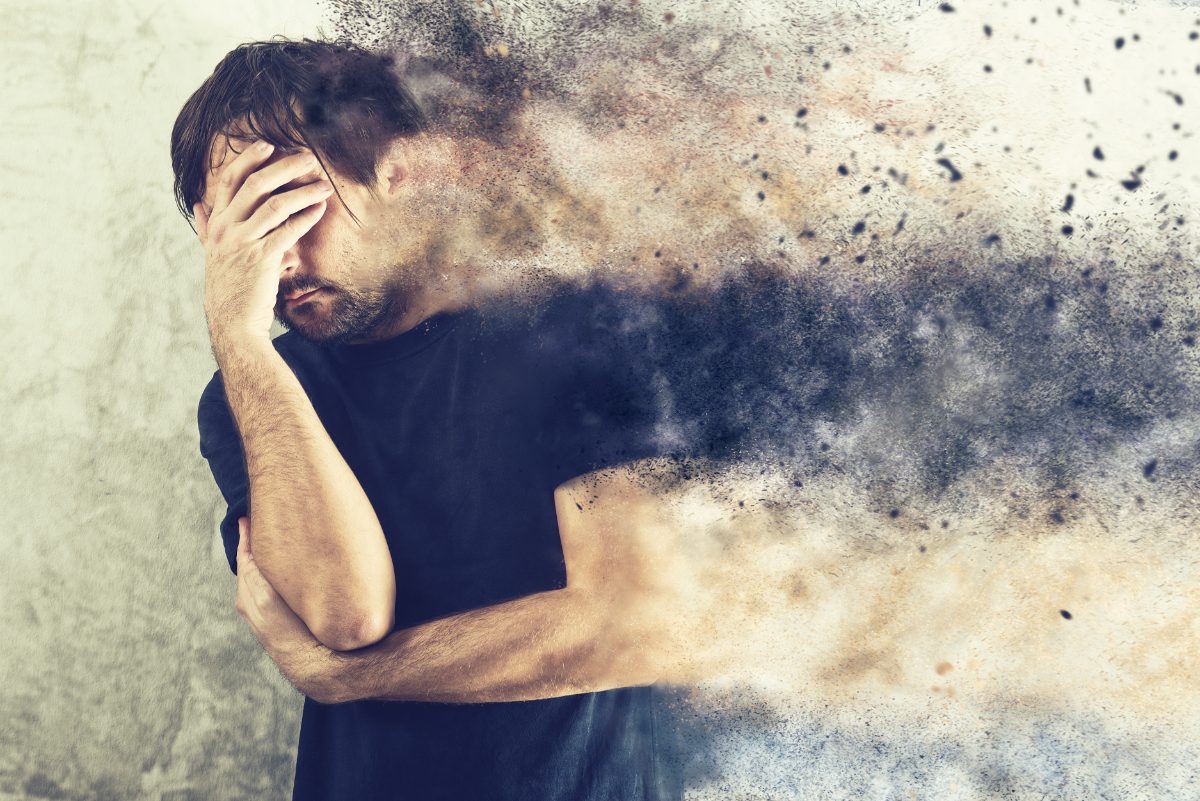Psychedelic-assisted therapy has seen a significant resurgence in the past few years, all thanks to growing evidence that these “unorthodox” treatments can help alleviate mental health conditions like depression, PTSD, and symptoms of substance use disorder.
But, the truth is that psychedelic therapy and microdosing psilocybin for mental health is not a new concept. In fact, it’s been happening for decades. Before the War on Drugs swept the world in the 1970s, psychedelics were widely used in therapeutic settings, with many early pioneers attesting to their potential. Our team at P.A.T.H. Therapy is committed to reviving this powerful tool, offering psilocybin-assisted therapy online to those seeking relief from mental health challenges.
Let’s take a look back at the fascinating historical roots of psychedelic therapy, share remarkable examples of individuals whose lives were transformed by it, and take a closer look at the modern resurgence of mental health mushrooms in treatment. These examples may act as an underscore of how psilocybin therapy is making waves in the mental health world, just as it did decades ago, reassuring you that this type of treatment is far from a temporary trend.
Bill Wilson and the Untold Psychedelic History of Alcoholics Anonymous
One of the most intriguing historical figures to engage with psychedelic therapy is Bill Wilson, the co-founder of Alcoholics Anonymous (AA). AA is known for its spiritual foundation in recovery, but less well-known is that Wilson himself experienced profound healing through the use of LSD in the 1950s. Wilson was introduced to psychedelic therapy by British psychiatrist Humphry Osmond, who was researching LSD’s ability to trigger transformative psychological experiences.
Wilson’s sessions with LSD were ground-breaking, helping him break down emotional barriers and access deeper spiritual insights, similar to the “spiritual awakenings” that AA promotes. He believed that LSD could help alcoholics reach the same level of self-awareness and emotional transformation that he achieved during his recovery. He even considered incorporating psilocybin-assisted therapy into AA, envisioning that it could help others find the "spiritual breakthrough" needed for sobriety. Though AA did not adopt psychedelic therapy, Wilson’s openness to exploring mental health and psilocybin treatments speaks to the potential these substances hold in the treatment of substance use disorders. His story is an early example of how these therapies gained momentum long before being forced underground.
Celebrity Pioneers in Psychedelic-Assisted Therapy
In the mid-20th century, several celebrities and cultural figures turned to psychedelics for therapeutic purposes, seeking healing from trauma, addiction, and existential struggles. These early pioneers serve as compelling case studies, demonstrating how psilocybin therapy can offer deep emotional release and clarity.
- Cary Grant, one of Hollywood's most iconic leading men, underwent more than 100 LSD therapy sessions in the 1950s. Grant credited these sessions with helping him overcome lifelong insecurities and childhood trauma, as well as unlocking a sense of inner peace he had never before experienced. For Grant, these treatments were a game-changer, allowing him to shed layers of emotional armor and embrace vulnerability in his personal and professional life.
- Anaïs Nin, a famed diarist and literary figure, experimented with mescaline therapy in the 1950s. Nin described her sessions as deeply enlightening, helping her gain new perspectives on her emotions and relationships. The experience of using psychedelics in a therapeutic setting allowed Nin to break free from conventional thinking and delve into her subconscious, influencing much of her later work.
Aldous Huxley, author of Brave New World, was a vocal advocate for the use of psychedelics to expand human consciousness. His exploration of mescaline, described in The Doors of Perception, was a transformative experience that reshaped his understanding of human psychology and spirituality. Huxley believed that psychedelics had the potential to unlock doors in the mind, offering access to realms of consciousness typically hidden from view.
All of these are excellent examples that highlight the early therapeutic use of psychedelics in helping individuals gain emotional clarity, break through mental blocks, and address deep-seated traumas. While the War on Drugs stifled much of this early research, the stories of these pioneers serve as a reminder of the untapped potential of psilocybin for depression and other mental health issues.
Celebrities Speaking Out About Their Psilocybin Journeys
High-profile celebrities have also publicly shared their personal experiences with psilocybin therapy, helping to reduce the stigma surrounding mental health mushrooms. Will Smith, for instance, has discussed how his psilocybin experiences gave him profound insights into his past traumas and helped him rebuild his emotional and psychological resilience. His openness about using psilocybin for mental clarity has sparked conversations about the benefits of psychedelic therapy for emotional well-being.
Mike Tyson, the legendary boxer, has spoken candidly about how psilocybin therapy helped him confront years of buried trauma and addiction. Tyson credits psilocybin for his remarkable mental health transformation, describing it as a key part of his recovery journey. Megan Fox has also shared her experiences with psilocybin, describing it as a life-altering tool that allowed her to "let go of years of anger" and embrace a deeper sense of peace.
These stories from celebrities who have embraced psilocybin therapy highlight its growing acceptance as a legitimate mental health treatment. Their voices are playing a significant role in pushing the conversation about psilocybin therapy into the mainstream, helping to normalize its use in addressing mental health challenges like depression, anxiety, and PTSD.
The Modern Resurgence: Psilocybin Therapy in the 21st Century
Today, the tide is turning once again. In recent years, a growing body of research has demonstrated the efficacy of psychedelic therapy in treating a variety of mental health conditions, from depression to PTSD and substance use disorders. Psilocybin, in particular, has been at the forefront of this movement, offering new hope to those for whom conventional treatments have failed.
A compelling example of this resurgence can be found in the work of journalist and author Michael Pollan, who documented his own experiences with psychedelic-assisted therapy in the groundbreaking book How to Change Your Mind. Pollan’s journey through psilocybin therapy revealed the profound potential of mental health mushrooms to shift deep-seated emotional and psychological patterns. Pollan’s accounts of undergoing psilocybin-assisted therapy under the guidance of trained professionals echo the experiences of earlier pioneers like Cary Grant and Bill Wilson, showing the continued relevance of these substances in modern mental health care.
This resurgence is being driven not just by anecdotal evidence but by rigorous scientific research. Studies have shown that psilocybin therapy can produce rapid, lasting improvements in individuals with treatment-resistant depression. In one landmark study, participants who underwent psilocybin therapy experienced significant reductions in depressive symptoms, with many reporting transformative emotional breakthroughs. Similarly, research into psilocybin for depression, anxiety, and PTSD is showing promising results, often where conventional treatments have failed.
At P.A.T.H. Therapy, we’re embracing this modern resurgence by offering evidence-based psychedelic therapy to those seeking new paths to healing. With psilocybin-assisted therapy, we’re helping clients address deep emotional wounds, confront their mental health challenges, and find lasting relief.
The Road Ahead: Reclaiming the Healing Power of Psychedelics
As we look ahead, it’s clear that psychedelic therapy has the potential to revolutionize mental health care. From its roots in the therapeutic sessions of cultural figures like Cary Grant and Aldous Huxley to the modern-day clinical research demonstrating its efficacy, psilocybin therapy has come a long way. Mental health and psilocybin are increasingly intertwined, with a growing number of people turning to these treatments for relief from conditions like depression, PTSD, and substance use disorders.
At P.A.T.H. Therapy, we believe that psilocybin therapy is more than just a trend—it's a vital tool for healing. Our approach to psychedelic-assisted treatment focuses on creating a safe, supportive environment where clients can explore their inner landscapes, confront their challenges, and achieve profound breakthroughs. Combining cutting-edge research with compassionate care, we’re helping our clients reclaim their mental health and embrace the future with hope.
The potential of psilocybin for depression and other mental health conditions is becoming more evident with every new study and testimonial. As more individuals seek alternative solutions to conventional treatments, the role of mental health mushrooms in therapy is poised to grow. The future of mental health and psilocybin therapy is bright, and at P.A.T.H. Therapy, we’re proud to be leading the way.
Sources:





